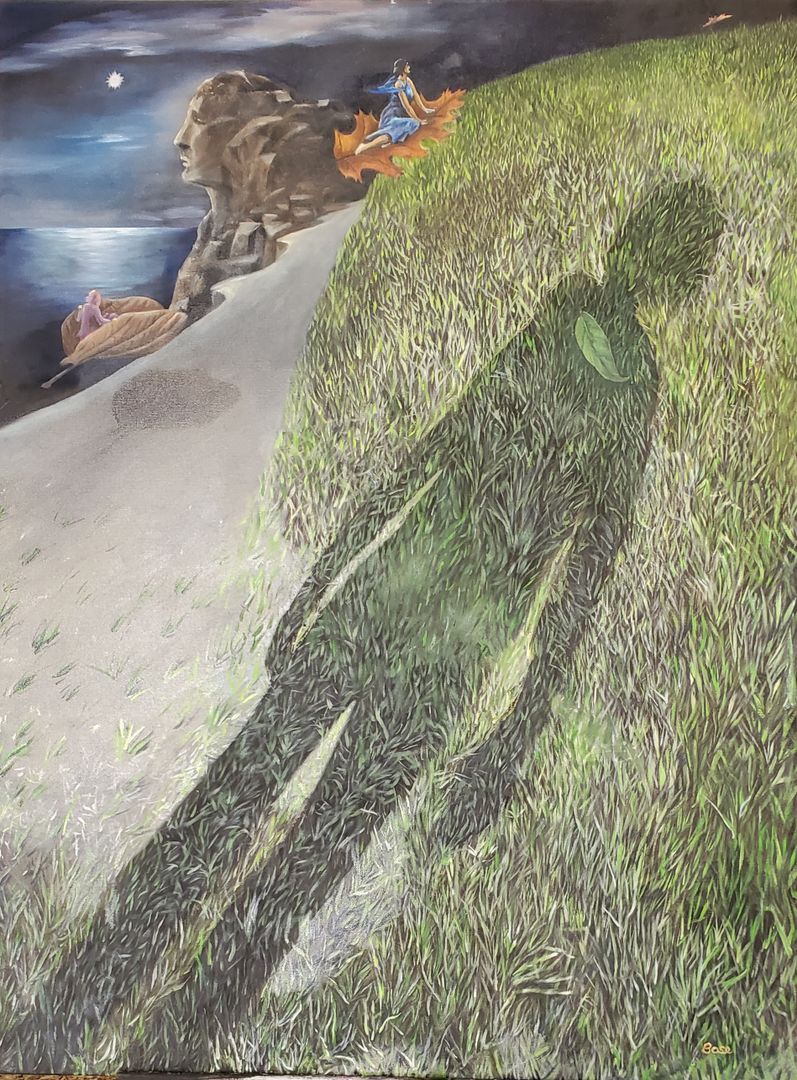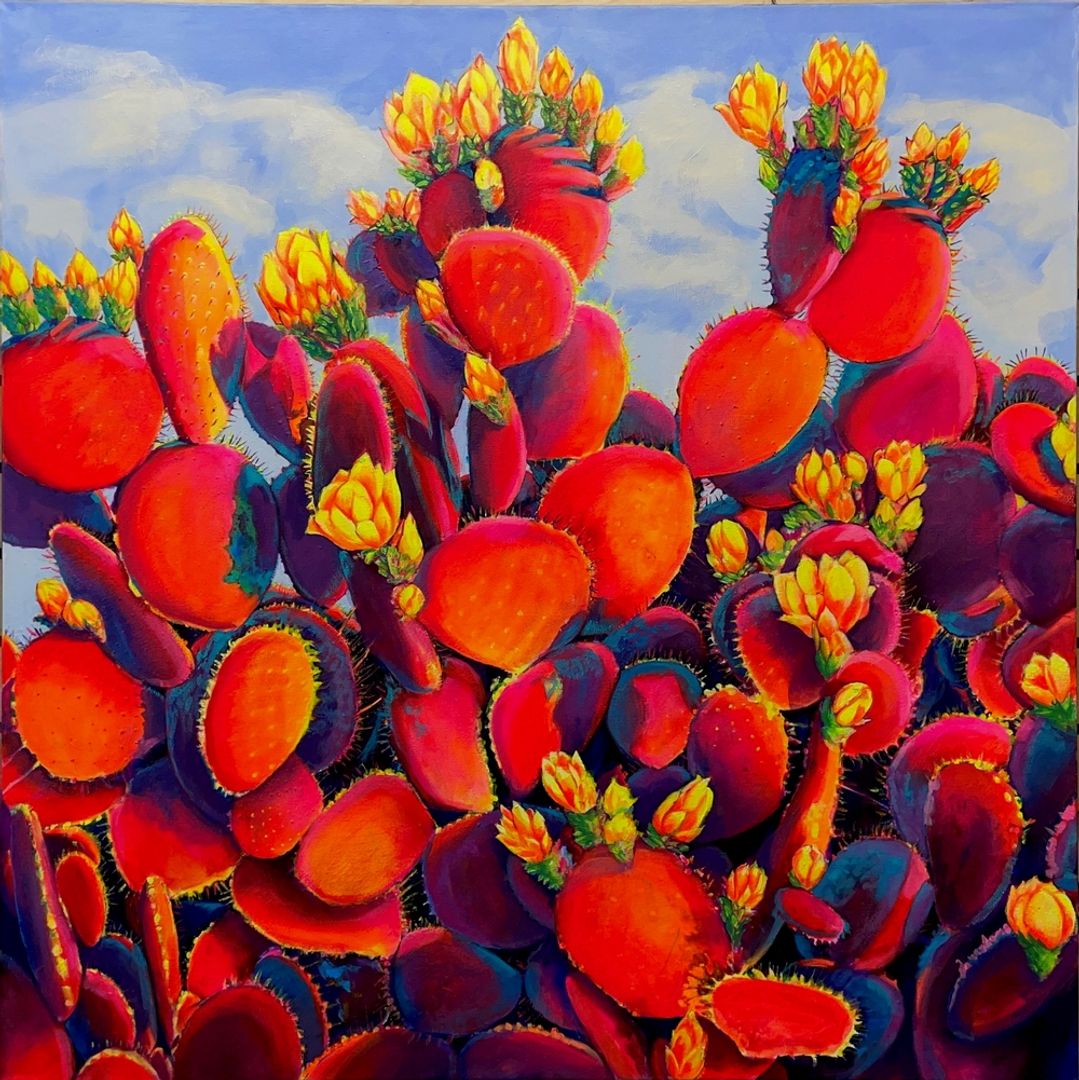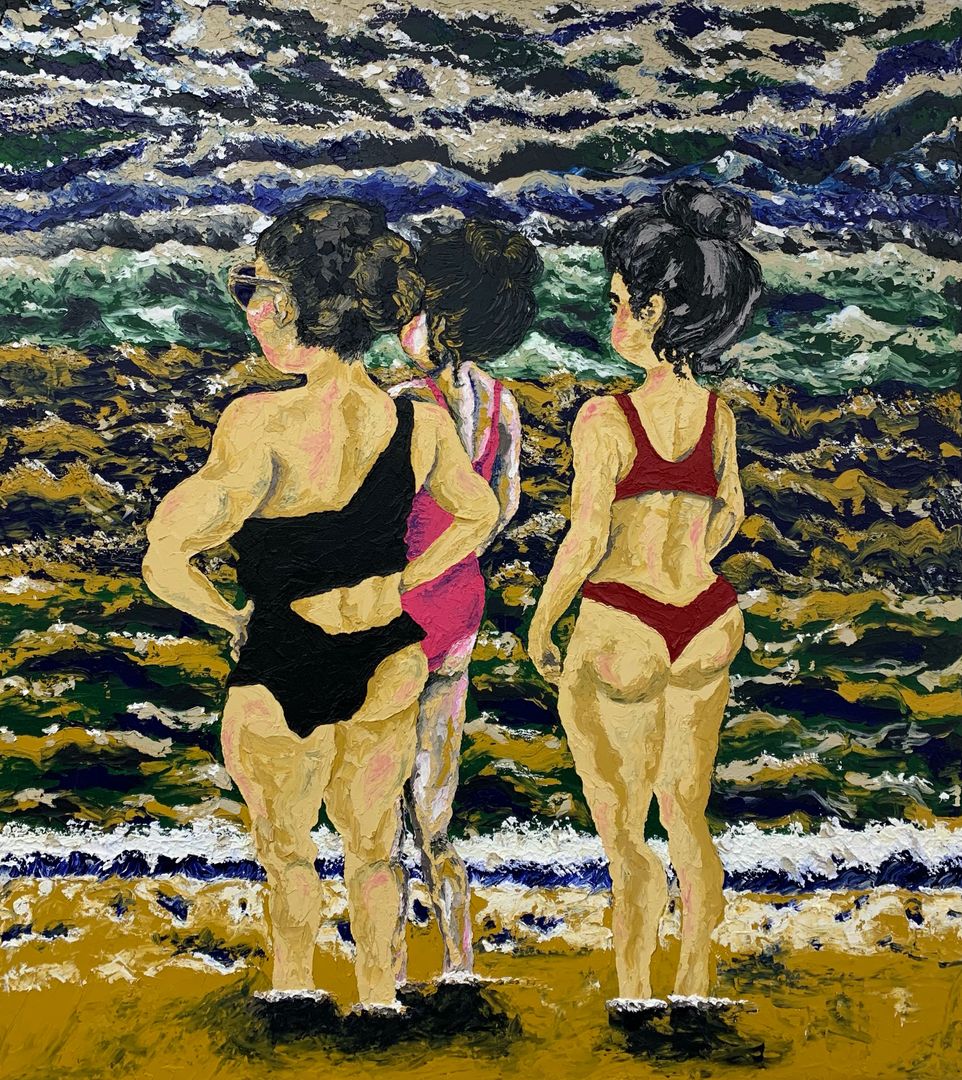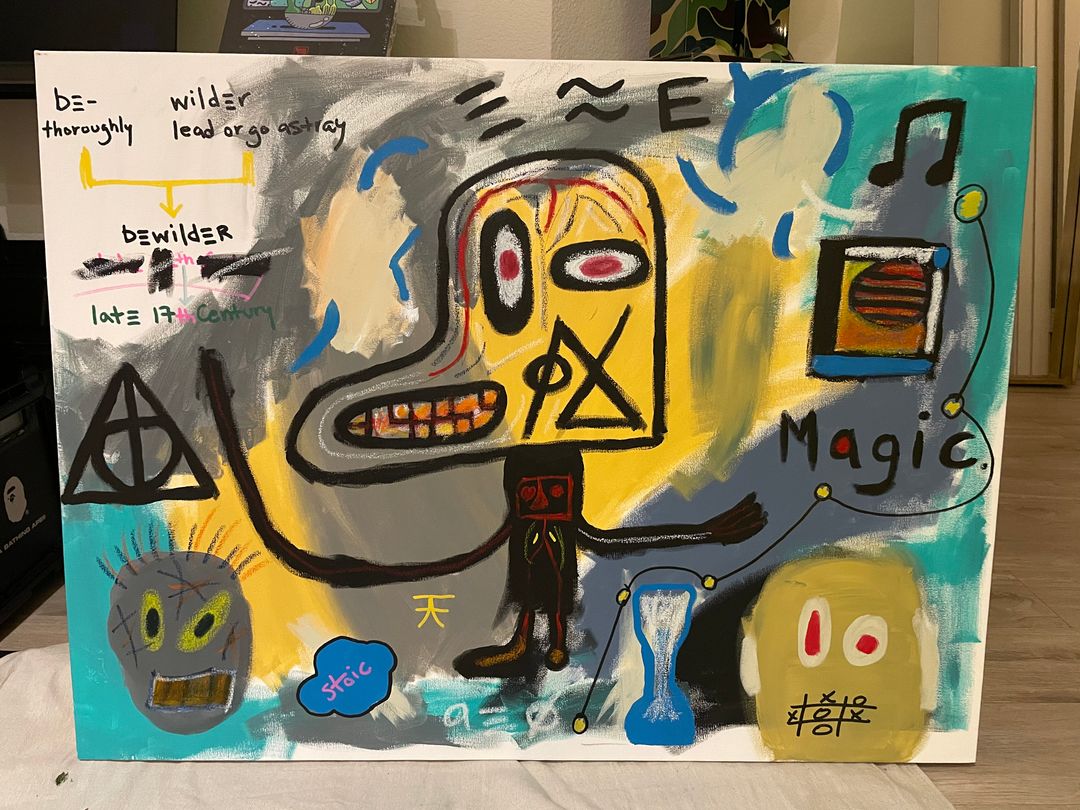Niobe's Shadow
A procession of departing souls ‘leaving’ for new horizons on their individual magic carpets. One person looks ahead while another gazes at a star, which is one of the sources of light. The long shadow on the grass suggests another light source, either a rising or setting sun (your choice). The green leaf on the ground suggests this is a story about the passage of time. The cliff with the sad face in the background is a depiction of a real place (Niobe Rock in Turkey), named after a mythological Greek character who weeps for the loss of her loved ones.
Responses (1)

July 09, 2022
Barbara Bose’s beautiful and beguiling surrealist fantasy, Niobe's Shadow, is immensely thematically complex. I am not foolish or delusional enough to attempt an overarching critique of this work. However, some consistent themes throughout the painting cannot be ignored (even by a writer worried their analysis will prove inadequate). More than anything else, Niobe's Shadow is about loss. But it is not just about the feeling of loss but the entire process of losing someone dear to one’s heart.
The experience of loss is not necessarily about death or misery. Nor is it necessarily about one form of lost love over another. However, for the sake of both the reader and myself, I will contain my musings to only romantic love (ok, there’s a chance I might branch out, but let’s hope I can exercise some restraint).
Loss often feels sudden, but it rarely is, especially in affairs of the heart. Of course, the party leaving is usually more prepared for the separation than their counterpart, but I doubt there has ever been a person who made a spur-of-the-moment decision to leave a partner they loved. Perhaps some have imagined their decision spontaneous, but, even unconsciously, it must have been in the works for some time. The process of loss is long and begins well before any official separation. After the heady chaos, the ecstatic madness of the initial stage of love, people either grow apart or closer together. Often these two directions of growth become so inextricably linked that discussing them separately seems impossible. Sometimes an increasing absence of desire for someone's company draws people apart, and other times becoming too codependent erodes a relationship. Ironically, many great loves have ended before their time because one or both partners did not think their desire for cohabitation was sufficient. Many relationships that should have ended much sooner were drawn out by an unhealthy need to be around each other. I was once in a seven-year relationship that should have ended well before it did. Still, even years into the process of loss I, nor my partner, could not accept our inevitable separation because our existences had become so tied that only an "us" existed. Having so forgotten the "I," we were terrified of losing ourselves and our partner in one fell swoop. We might never have needed to break up if we had not indulged in the comfort of letting the "us" consume the "I."
David Fromm, a philosopher whose writings on love I am rather fond of, warns us against the pitfalls of codependency. He makes the case that one cannot truly be in love if one needs their partner to be happy. He calls this sort of arrangement transactional love; part of the reason you are "in love" with the person is they provide a sense of purpose, fulfillment, safety, and any other absolute necessity for a happy life. Only the person who finds substantial meaning outside of their relationship can truly be in love because once any existential need is removed from the equation, all that remains is love. Fromm admits that this pure love is incredibly rare and perhaps wholly unprecedented in the history of humanity. Still, he establishes it as an ideal goal to which one should aspire. In his most extreme example, Fromm claims that the person who can exercise the purest love could lose their partner tomorrow and feel utterly confident everything will be ok. Fromm is not suggesting one should be a heartless automaton; far from it, he wants us to have so much heart and love for the world, other people, and ourselves that losing even a great love would be immeasurably painful but not earth-shattering. We should have so much love in our hearts that even the absence of our greatest love could not drain all our joy. Love is happiness, and we must never let our happiness reside solely in the hands of one person, or we will love them for what they provide and not who they are, and their loss will become our own.
As Bose points out, the long shadow in the foreground of the painting is created by either a rising or setting sun and then leaves it up to the viewer to decide between the latter or the former. For me, this is the most poignant question posed by Bose’s masterful painting: will the end of our loving partnership with another be the end of ourselves and our capacity to love, or will it be another chapter in a book brimming with love and meaning? The night can make everything we know and love disappear under a blanket of darkness, but it can never stop the coming of the day.

- Category
- Symbolic, Conceptual
- Type
- Painting - Unframed
- Materials
- Oil, Canvas
- Dimensions
-
30.00 inches wide
40.00 inches tall
2.00 inches deep - Weight
- 8.00 lbs
- Location
- West Palm Beach, FL, US




